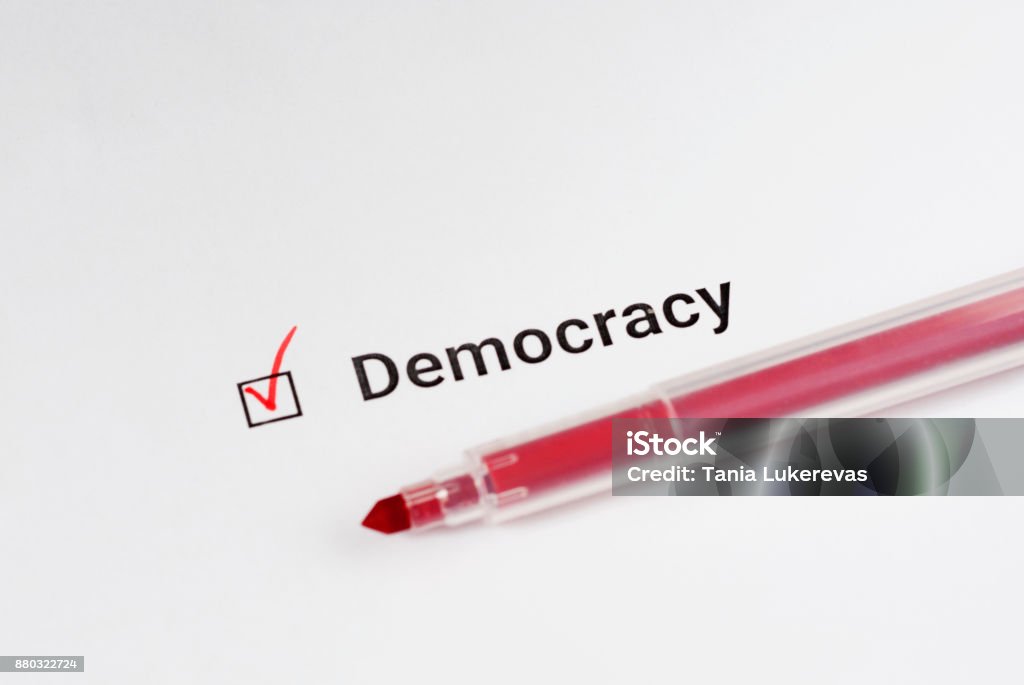


Democracy is one of the most powerful and widely adopted systems of governance in the modern world
Democracy, derived from the Greek words demos (people) and (power), fundamentally means “rule by the people.” It is a political system that empowers citizens to influence decisions that affect their lives, either directly or through elected representatives. Democracy is not merely a method of governance but a philosophy that upholds the values of freedom, equality, accountability, and participation. As nations around the world grapple with rapid social, economic, and political changes, democracy remains a vital framework for ensuring that power rests in the hands of the people rather than a select few.
At its heart, democracy is built on several key principles. These include free and fair elections, the rule of law, the protection of fundamental rights, and an active civil society. Elections serve as the most visible feature of a democratic system. They allow citizens to choose their leaders and hold them accountable. However, elections alone do not constitute a democracy. They must be transparent, inclusive, and conducted under conditions that ensure freedom of expression and association.
The rule of law ensures that everyone, including leaders, is subject to the same laws. This principle protects citizens from arbitrary rule and provides legal channels to resolve disputes. Fundamental rights such as freedom of speech, religion, and the press enable individuals to express their opinions, criticize government actions, and participate in political debates. Lastly, an active civil society comprising non-governmental organizations, community groups, and independent media plays a critical role in holding power to account and promoting civic engagement.
Democracy has evolved significantly over centuries. The earliest known democratic systems appeared in ancient Greece, notably in Athens, where male citizens participated directly in decision making. However, these systems excluded women, slaves, and foreigners, highlighting early limitations in democratic participation.
Modern democracy began to take shape during the Enlightenment era, influenced by philosophers such as John Locke, Jean Jacques Rousseau, and Montesquieu. The American and French Revolutions of the 18th century marked turning points, emphasizing ideas like popular sovereignty, constitutional government, and the separation of powers.
While democracy is widely embraced as an ideal form of government, its implementation varies greatly. Countries like Norway, Canada, and New Zealand are often cited as robust democracies due to their high levels of transparency, civil liberties and political participation. On the other hand, some nations operate under the guise of democracy while limiting freedoms, controlling the media, or manipulating elections.
Challenges to democratic governance also include corruption, misinformation, polarization, and voter apathy. In many democracies, rising inequality and disillusionment with political elites have led to a decline in public trust. Populist leaders sometimes exploit these frustrations, undermining democratic institutions while claiming to represent the “true will” of the people.
Technology has introduced both opportunities and threats. Social media platforms can mobilize civic action and facilitate political awareness, but they also serve as breeding grounds for misinformation, hate speech, and foreign interference in elections.
The global landscape for democracy has been mixed in recent years. According to various democratic indices, such as those from Freedom House and The Economist Intelligence Unit, there has been a notable democratic backsliding in many parts of the world. Authoritarian regimes have tightened their grip, often using national security or public health crises as justifications for restricting freedoms.
At the same time, democratic movements continue to emerge. From Hong Kong to Belarus, citizens have mobilized to demand greater accountability and participation. The resilience of these movements demonstrates that the desire for freedom and representation is universal.
The future of democracy depends on collective efforts to renew and strengthen its foundations. Education is perhaps the most powerful tool in this endeavor. Civic education fosters critical thinking, informed participation, and a deeper appreciation of democratic values.
Governments must also adapt to new realities by embracing transparency, encouraging citizen engagement, and addressing systemic inequalities. Electoral reforms, digital governance, and anti corruption initiatives can go a long way in restoring faith in democratic institutions.
Democracy is more than a form of government; it is a living, evolving process that reflects the collective will and conscience of a society. It demands active participation, respect for diversity, and a commitment to the common good. While imperfect and often challenged, democracy remains humanity’s most promising path toward a just and equitable society.
